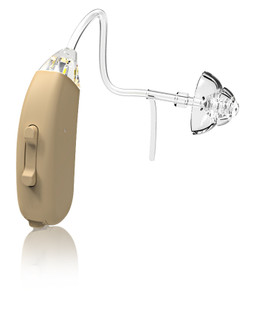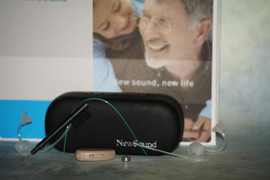Hearing Loss and Brain Health: The Surprising Connection
Posted by DR Paul on Feb 08, 2024
Hearing loss is a common problem that affects millions of people worldwide. It can be caused by various factors such as genetics, aging, exposure to loud noise, and infections. While hearing loss is often seen as a physical ailment, recent studies have found a surprising connection between hearing loss and brain health. In this blog post, we will explore the relationship between hearing loss and brain health, discussing recent discoveries and studies. We will also provide advice on how to protect your hearing to maintain brain health.
The first thing to understand about the relationship between hearing loss and brain health is that our brains rely heavily on sound input. When we hear something, our ears send signals to our brains, which then interpret those signals as sounds. If we experience hearing loss, our brains receive less sound input than they are used to receiving. This lack of stimulation can lead to changes in the brain's structure and function over time.
Recent studies have shown that people with untreated hearing loss are more likely to develop cognitive problems like dementia and Alzheimer's disease than those without hearing loss. In fact, one study found that people with mild hearing loss were twice as likely to develop dementia as those with normal hearing. Another study found that older adults with untreated hearing loss experienced up to 40% faster rates of cognitive decline than those with normal hearing.
So what's behind this connection? One theory is that when the brain doesn't receive enough sound input, it starts reallocating resources away from areas dedicated to processing sound towards other functions like memory and attention. This reallocation can lead to cognitive deficits over time.
Fortunately, there are steps you can take to protect your hearing and maintain your brain health. First and foremost, avoid exposure to loud noise whenever possible. Wear earplugs or noise-cancelling headphones when you're in noisy environments like concerts or construction sites. If you work in a noisy environment, make sure your employer provides appropriate hearing protection.
Another way to protect your hearing is to get regular hearing check-ups. Catching hearing loss early can help prevent further damage and improve your overall quality of life. If you do have hearing loss, consider getting hearing aids or other assistive devices. These can help improve your ability to hear and reduce the cognitive strain associated with untreated hearing loss.
Finally, stay socially active and mentally engaged. Research has shown that staying socially connected and mentally stimulated can help slow cognitive decline in older adults. Engage in activities that challenge your brain like puzzles or learning a new skill.
Conclusion:
The connection between hearing loss and brain health is a surprising one, but it's becoming increasingly clear that taking care of our ears can have a big impact on our overall cognitive health. By protecting our hearing through avoiding loud noise, getting regular check-ups, and using assistive devices when necessary, we can help keep our brains healthy and sharp as we age. So don't neglect your ears – they're more important than you might think!










